Why planning your death is important - from making a will to donating organs
- Published
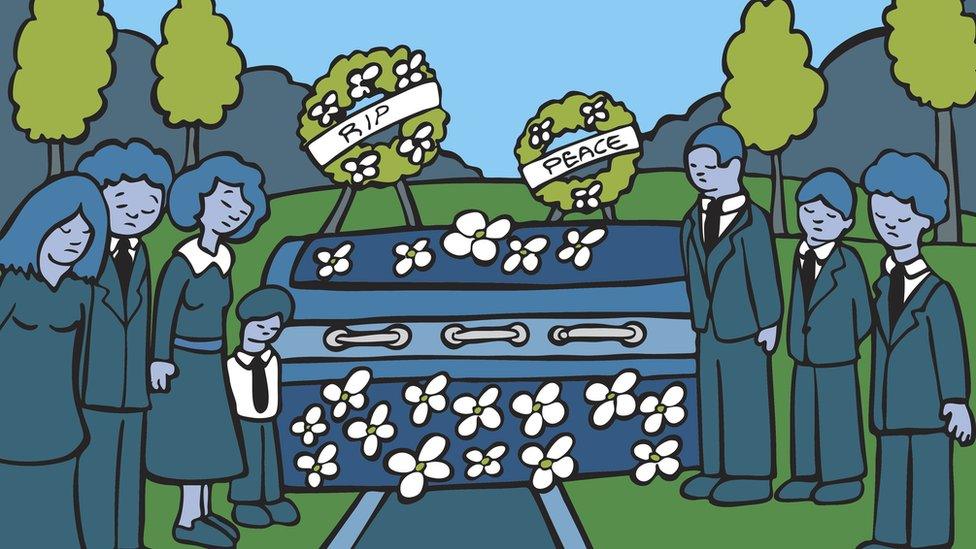
It may be something you've never thought about doing but it's important to make sure there are plans in place for when you die.
If you've got some savings or nice jewellery, who do you want to get it? What about your Facebook photos? Who can access them?
"When you're young you may not feel you need a will because you don't own much, but in reality you've got your digital legacy to think of, even if you don't have much else to your name yet," the charity Dying Matters has told Newsbeat.
So here are five simple things that you can do to make it easier for your friends and family when you die.
1. Make a will
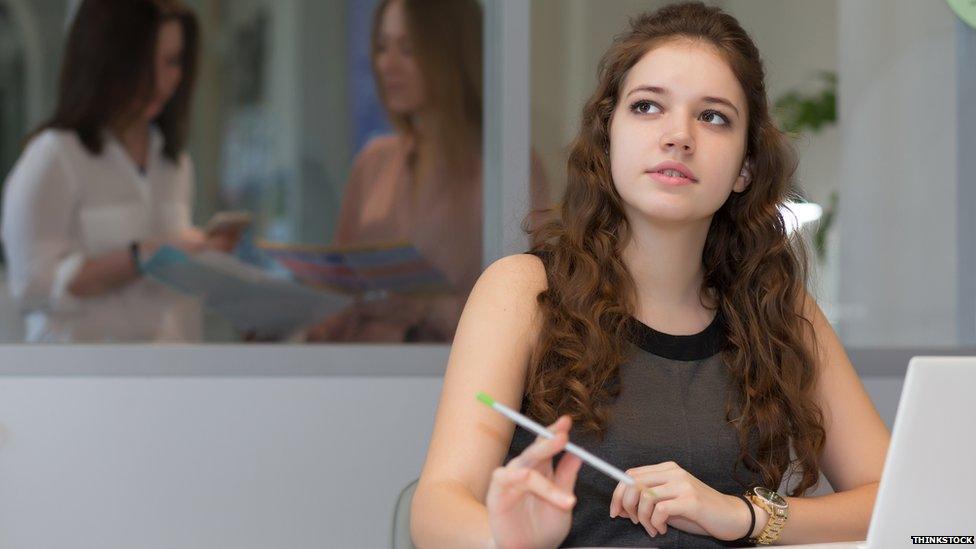
A will is a legal document where you can write down what you want to happen to your money, property and possessions after your death.
You can write your will yourself but it's sometimes a good idea to get some advice.
In order to make sure it's legal, you'll need to get your will formally witnessed and signed.
One option is to get a solicitor to help you write it. This can cost between £100 and £200, but it can save you - and those you leave behind - a lot of stress in the long run.
You could save some money by using a will-writing service, external, or if your will is going to be simple, you may be able to write it yourself.
If you don't have a will then then the law decides where your belongings go.
For example, if you have children, your possessions automatically go to them or they may go to your parents or your partner.
2. Plan your funeral
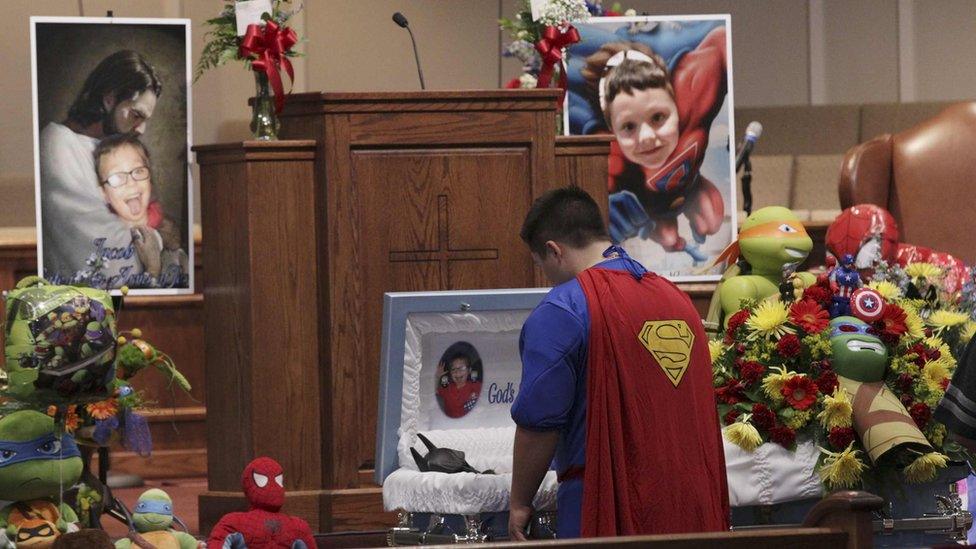
Dale Hall, dressed in a Superman outfit, stands before his little brother's coffin during his funeral
Do you want everyone to dress up as a superhero or do you want to make it an eco-friendly affair?
"One of the most thoughtful things you can do for your family is to give them the freedom to celebrate your life instead of the burden of planning your funeral," Dying Matters says.
"You'd probably put a lot of effort into planning a big birthday party so it's right for you, so why not put the same attention into what you'd like for a funeral?
"Should the worst happen, you want to know that you've made your wishes clear, and you don't have to leave it to family members to guess what treatment you'd like if you can't decide for yourself, or what your send-off should be."
If you need some help planning it then there's a handy document you can download, external.
3. Donate your organs
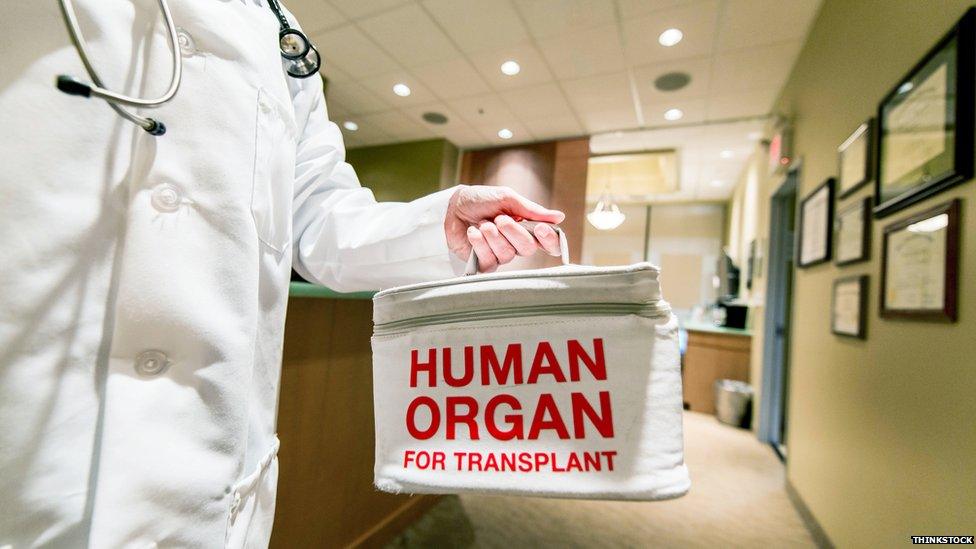
When you die you may be able to help others live on, like Hannah.
The 21-year-old from Hampshire is one of thousands who need a transplant in the UK.
Last year she told Newsbeat she'd been waiting two years for a new heart.
In Wales, it's now assumed you're happy to donate your organs when you die but if you live elsewhere in the UK you have to register, external to become a donor.
4. Social media
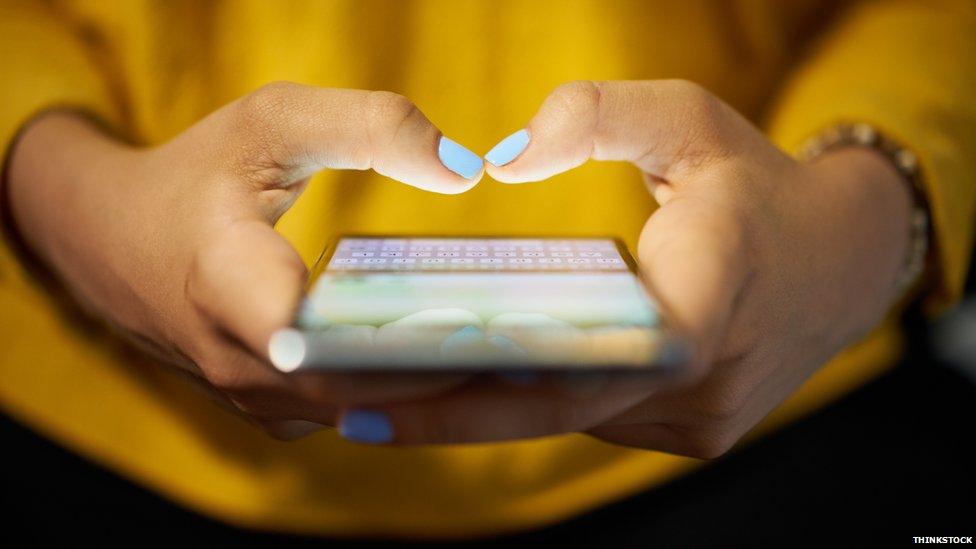
Have you ever thought about what happens to your Facebook, Instagram or Twitter account when you die?
Each social network has a different policy when it comes to a user's death.
When a Facebook user dies, the photos on their account and the interactions they've made, change from their 'digital footprint' to their 'digital legacy'.
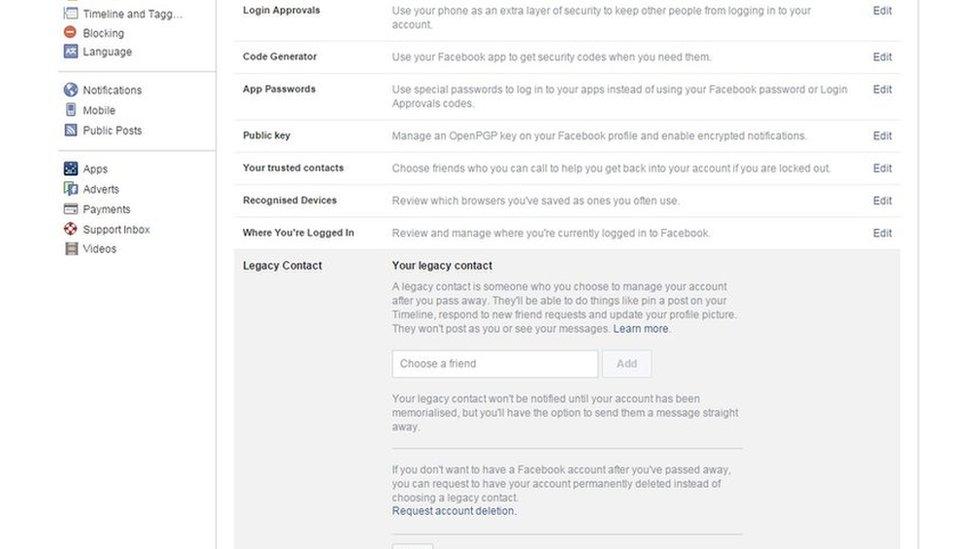
You can now assign a 'legacy contact' who'll be able to access your photos and videos if you die.
If your account is memorialised they'll be in charge of looking after that too.
Instagram says: "It's our policy to remove the account of a deceased person from Instagram.
"To protect the privacy of people on Instagram, we're unable to provide anyone with login information to an account."
Twitter automatically deletes a user if the account is inactive for six months.
If you want your Twitter handle to live on, then it's recommended you should transfer your account or provide the password to your next of kin.
See more info on what to do about your digital legacy, external.
5. Talk to your friends and family
How to deal with death: A Newsbeat special on bereavement
Once you've had a good think about it all, it's a good idea to chat to your friends and family about your decisions.
Have a good think about who you need to share this with and when you're going to talk with them about it.
You may not care what happens to your possessions or social media when you die, but if you do, it's important to tell others about it.
Find us on Instagram at BBCNewsbeat, external and follow us on Snapchat, search for bbc_newsbeat